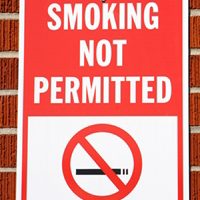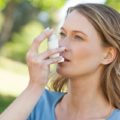
Statistics from the U.S. Centers for Disease Control and Prevention (CDC) reveal that secondhand smoke can lead to some serious health effects. For example, it increases the risk of stroke by up to 40 percent, causes nearly 34,000 premature deaths from heart disease and puts babies at greater risk of Sudden Infant Death Syndrome (SIDS)—just to name a few.
Over the past couple decades, the United States and Europe have both taken significant steps toward banning smoking in public places and, according to new research conducted by University of Edinburgh's Centre for Population Health Sciences, it has had a positive effect on people's health.
Reuters reports that "rates of both pre-term births and hospital attendance for asthma fell by 10 percent within a year of smoke-free laws coming into effect." This data is important, as it could help accelerate the implementation of anti-smoking laws in cities across the world that haven't yet made these changes.
"Together with the known health benefits in adults, our study provides clear evidence that smoking bans have considerable public health benefits for perinatal and child health," said Jasper Been, lead author of the study.
If you're one of the millions of people who suffer from asthma, it's in your best interest to avoid secondhand smoke and any other irritants that could trigger an attack. One of the best ways to reduce your exposure to pollutants—at least when you're at home—is to install an allergen air purifier, which works by removing allergens directly from the air. Check out the Allergy Be Gone website to learn more about this and other allergy control products, such as hypoallergenic mattresses and sheets.









